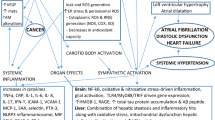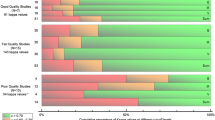Abstract
Background
There is common agreement in the literature that it can result in an underestimation of benign paroxysmal positional vertigo (BPPV) in the elderly.
Aims
The aim of this work was to analyze the role of anamnesis in the diagnosis of BPPV in patients of different ages through the development and validation of a scored questionnaire.
Methods
The questionnaire is based on the presence/absence of six typical anamnestic features of BPPV. The Mini-Mental State Exam (MMS) was also administered to patients over 65 years of age. Bedsides, examination for BPPV was then carried out, assigning the outcome of the questionnaire and eventual MMS to the final diagnosis for each patient.
Results
The sensitivity and specificity of the questionnaire for high scores (>8) were found to be, respectively, 86 % and 80 % in all patients, 94 and 71 % in those under 65 years of age, 78 and 90 % in patients over 65, and, in particular, 63 and 83 % in those with MMS >24 and 100 and 100 % in those with MMS ≤24.
Discussion
The reliability and average score of the questionnaire were statistically significantly lower in the group of elderly patients without cognitive deficits. The lower reliability of the questionnaire in the geriatric population, rather than the presence of cognitive deterioration, seems to correlate with other comorbidities or simply to a lower mobility of the head triggering positional symptoms.
Conclusion
The use of the questionnaire could however reduce the risk of a missed diagnosis of BPPV given its good reliability across all ages.


Similar content being viewed by others
References
von Brevern M, Radtke A, Lezius F et al (2007) Epidemiology of benign paroxysmal positional vertigo: a population based study. J Neurol Neurosurg Psychiatry 78:710–715
Bhattacharyya N, Baugh RF, Orvidas L et al (2008) Clinical practice guideline: benign paroxysmal positional vertigo. Otolaryngol Head Neck Surg 139:S47–S81
Bloom J, Katsarkas A (1989) Paroxysmal positional vertigo in the elderly. J Otolaryngol 18:96–98
Schuknecht HF (1969) Cupulolithiasis. Arch Otolaryngol 90:765–778
Brandt T, Steddin S (1993) Current view of the mechanism of benign paroxysmal positioning vertigo: cupulolithiasis or canalolithiasis? J Vest Res 3:373–382
Epley JM (1992) The canalith repositioning maneuver for treatment of benign paroxysmal positional vertigo. Otolaryngol Head Neck Surg 107:399–404
Semont A, Freyss G, Vitte E (1988) Curing the BPPV with a liberatory maneuver. Adv Otorhinolaryngol 42:290–293
Gufoni M, Mastrosimone L, Di Nasso F (1998) Repositioning maneuver in benign paroxysmal vertigo of horizontal semicircular canal. Acta Otorhinolaryngol Ital 18:363
Mandalà M, Santoro GP, Awrey J et al (2010) Vestibular neuritis: recurrence and incidence of secondary benign paroxysmal positional vertigo. Acta Otolaryngol 130:565–567
Colledge NR, Barr-Hamilton RM, Lewis SJ et al (1996) Evaluation of investigations to diagnose the cause of dizziness in elderly people: a community based controlled study. BMJ 313:788–792
Sloane PD, Coeytaux RR, Beck RS et al (2001) Dizziness: state of the science. Ann Intern Med 134:823–832
Sloane P, Blazer D, George LK (1989) Dizziness in a community elderly population. J Am Geriatr Soc 37:101–108
Oghalai JS, Manolidis S, Barth JL et al (2000) Unrecognized benign paroxysmal positional vertigo in elderly patients. Otolaryngol Head Neck Surg 122:630–634
Folstein MF, Folstein SE, McHugh PR (1975) “Mini-mental state”: a practical method for grading the cognitive state of patients for the clinician. J Psychiatr Res 12(3):189–198
Mandalà M, Nuti D, Broman AT et al (2008) Effectiveness of careful bedside examination in assessment, diagnosis, and prognosis of vestibular neuritis. Arch Otolaryngol Head Neck Surg 134:164–169
Faralli M, Ricci G, Molini E et al (2006) Paroxysmal positional vertigo: the role of age as a prognostic factor. Acta Otorhinolaryngol Ital 26:25–31
Batuecas-Caletrio A, Trinidad-Ruiz G, Zschaeck C et al (2013) Benign paroxysmal positional vertigo in the elderly. Gerontology. 59:408–412
Plodpai Y, Atchariyasathian V, Khaimook W (2014) The characteristic differences of benign paroxysmal positional vertigo among the elderly and the younger patients: a 10-year retrospective review. J Med Assoc Thai 97:850–855
Kollén L, Frändin K, Möller M et al (2012) Benign paroxysmal positional vertigo is a common cause of dizziness and unsteadiness in a large population of 75-year-olds. Aging Clin Exp Res 24:317–323
Ekvall Hansson E, Månsson NO, Håkansson A (2005) Benign paroxysmal positional vertigo among elderly patients in primary health care. Gerontology 51:386–389
Teggi R, Giordano L, Bondi S et al (2011) Residual dizziness after successful repositioning maneuvers for idiopathic benign paroxysmal positional vertigo in the elderly. Eur Arch Otorhinolaryngol 268:507–511
Faralli M, Cipriani L, Del Zompo MR et al (2014) Benign paroxysmal positional vertigo and migraine: analysis of 186 cases. B-ENT 10:133–139
Smith PF, Zheng Y, Horii A et al (2005) Does vestibular damage cause cognitive dysfunction in humans? J Vestib Res 15:1–9
Gufoni M, Guidetti G, Nuti D et al (2005) The relationship between cognitive impairment, anxiety-depression symptoms and balance and spatial orientation complaints in the elderly. Acta Otorhinolaryngol Ital 25(3 Suppl 79):12–21
Brandt T, Strupp M, Dieterich M (2014) Towards a concept of disorders of “higher vestibular function”. Front Integr Neurosci 8:47
Grafman J, Litvan I, Massaquoi S et al (1992) Cognitive planning deficit in patients with cerebellar atrophy. Neurology 42:1493–1496
Thurston SE, Leigh RJ, Abel LA et al (1987) Hyperactive vestibulo-ocular reflex in cerebellar degeneration: pathogenesis and treatment. Neurology. 37:53–57
Baloh RW, Jenkins HA, Honrubia V et al (1979) Visual-vestibular interaction and cerebellar atrophy. Neurology. 29:116–119
Acknowledgments
This research received no specific grant from any funding agency, commercial or not-for-profit sectors.
Author information
Authors and Affiliations
Corresponding author
Ethics declarations
Conflict of interest
The authors report no declarations of interest.
Statement of human and animal rights
The authors assert that all procedures contributing to this work comply with the ethical standards of the relevant national and institutional guidelines on human experimentation and with the Helsinki Declaration of 1975, as revised in 2008.
Informed consent
Informed consent was obtained from all individual participants in the study.
Rights and permissions
About this article
Cite this article
Lapenna, R., Faralli, M., Del Zompo, M.R. et al. Reliability of an anamnestic questionnaire for the diagnosis of benign paroxysmal positional vertigo in the elderly. Aging Clin Exp Res 28, 881–888 (2016). https://doi.org/10.1007/s40520-015-0487-0
Received:
Accepted:
Published:
Issue Date:
DOI: https://doi.org/10.1007/s40520-015-0487-0




